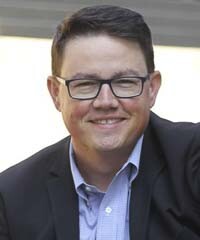
Chris Corry believes that Washington shouldn’t build its financial future on risky and volatile taxes like the capital gains excise tax
Chris Corry
Washington Policy Center
Jeff Bezos is trading the shores of Lake Washington for the beaches of South Florida. The announcement of his move has made news for various reasons but most notable is the impact of the recently enacted Washington “excise tax” on capital gains would have on the Amazon Founder.

As noted by our friends at the Tax Foundation, Jeff Bezos sold about $15 billion in stocks before the new law took effect, potentially saving over $1 billion in taxes. Moving his primary residency to Florida would ensure that any future stock sales would not be subject to the excise tax.
For every $1 billion sold, he would pay Washington $70 million dollars. With an estimated share of over $130 billion, that can really add up.
The capital gains tax isn’t the only enacted or potential taxes Jeff Bezos would avoid. The proposed wealth tax would levy a 1% tax on financial assets, excluding the first $250 million. This would mean an annual tax of over $1 billion on just the Amazon holdings. The current estate tax would take 20% on his estate upon his death.
What does this all mean for Washington state? Taxes have consequences.
For every Jeff Bezos or Fisher Investments that makes headlines for moving, there are many more who quietly leave the state. Washington’s competitive advantage for decades was its lack of an income tax. People and businesses will continue to leave for more tax-friendly states. This shouldn’t be a surprise to anyone.
Washington shouldn’t build its financial future on risky and volatile taxes like the Washington capital gains excise tax. This move highlights an inherent flaw in taxes that target individuals and businesses.
Chris Corry is the director of the Center for Government Reform at the Washington Policy Center. He is also a member of the Washington State House of Representatives.
Also read:
- Opinion: Vancouver’s new $30 rental fee will increase rents in the cityMark Harmsworth argues Vancouver’s new $30 rental unit fee will raise rents, discourage investment, and worsen affordability, urging the city to repeal the policy and pursue market-driven housing solutions.
- Opinion: The right speed to exitDoug Dahl of Target Zero explains that while exit-only freeway lanes follow the posted speed limit, drivers are legally required to reduce speed based on safety conditions as they approach offramps.
- Letter: It’s time for Vancouver to choose changeVancouver resident Michael Jelineo calls for new leadership in the city and voices his support for Justin Forsman in the mayoral race, urging others to back change.
- Opinion: ‘Vilifying broad swaths of Americans’Editor Ken Vance reflects on troubling posts by public defender Renee Alsept and shares a thoughtful perspective from longtime attorney Brad Andersen on ethics, discourse, and professionalism.
- POLL: Should the county update its Human Resources policy to include personal social media accounts of employees in sensitive roles?This week’s Clark County Today poll asks whether the county should update its Human Resources policy to include personal social media accounts of employees in sensitive roles, following concerns over online conduct.










